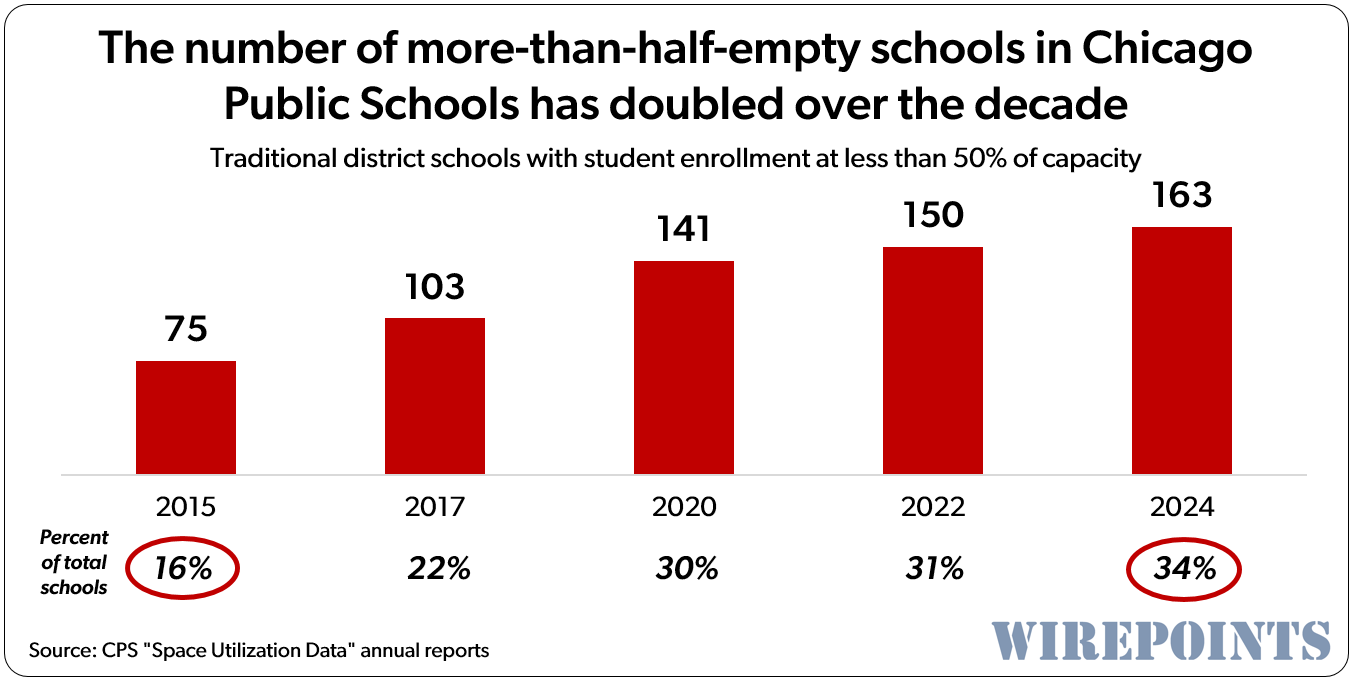By: Mark Glennon*
Why didn’t you tell us? How could you have done this to us? That’s the kind cry we’ll soon hear from both taxpayers and retirees in many local Illinois police and fire pensions when they finally realize how little of their pensions will be paid. Officials and pensioners’ unions haven’t leveled with them, whether because of cowardice or failure to look at plain math.
Just what solution is even conceivable for cities like Springfield, Joliet, Rockford and many others that have only 30% or 40% of their police and fire pensions funded? Chicago at least can pretend for now that additional taxes along with modest pension cuts are enough, but other troubled Illinois cities and towns simply don’t have any place they can raise taxes, and their pensions are insurmountable.
One public official who understands and has the courage to talk is James Palermo, Village of La Grange Trustee — a financial professional and Chartered Financial Analyst. “The village board recently voted to hike water and sewer fees and installed a new 1% restaurant tax,” he told me. “One trustee even suggested a property tax referendum to raise revenue beyond the statutory limit. Is it any wonder that Illinois has one of the lowest population growth rates in the country?” Only nickel and dime tax increases like that are available to most towns, and they won’t be enough.
Joliet, for example, has $250 million in unfunded debt for public safety pensions and the city has already had to cut its work force by about 100 employees the past few years. Rockford owes $180 million and its manufacturing base is decimated. The list goes on and on. Moline’s police fund was 41 percent funded in 2010. In Cairo, the firefighter system was 24 percent funded. As a group, police pensions outside Chicago were 56 percent funded in 2012, according to a Bloomberg article yesterday.
And those numbers are the artificially optimistic official numbers, based on bullshit, assumptions no independent financial economist supports.
Another city official on the level is Rockford Mayor Larry Morrissey, who has had the courage to say bankruptcy is needed. “Bankruptcy is designed to avert that kind of a slow, perpetual indentured servitude for individuals and corporations — why the hell should cities be treated differently?” said Morrissey.
I asked a leading Illinois Democratic legislator recently what solution is even conceivable for many Illinois cities. “There is none, except just to give them the money,” he answered. I won’t name him because that’s not the kind of thing he says in public. Besides, his answer is so obviously true if you look at the numbers. It’s also obvious that nobody, including the state, is going to “just give them the money.”
That legislator I mentioned also said Kankakee is probably the worst, and he might be right. Their pension is only 18% funded and their whole region is in trouble. Kankakee County is now cash-broke — laying off key personnel because it can’t keep up with current bills.
Making the problem worse are reporters who still underestimate the scope of the crisis. “Taxpayers and municipal employees have little idea just how poorly funded the pension plans are because few local media outlets report on it. In my seven years on the Village Board not a single local reporter has taken me up on my offer to describe La Grange’s pension problems,” Jim Palermo said.
The media and the public seem to think that a pension that has, say, 40% funding, still has a cushion of 60%, so insolvency is years away. That’s not how it works. Pensions need returns from fully funded pensions to meet their obligations. In other words, pay-as-you-go pensions, or something approaching that, are catastrophically expensive.
And bankruptcy is actually not a realistic option, for now. The Illinois Legislature would first have to approve letting Illinois cities file for Federal bankruptcy. When mayors start asking for that authorization do you think Madigan, Cullerton, Quinn and the boys will just turn over they keys to a bankruptcy judge? No, they will want to write their own version of a state insolvency proceeding, controlled by their appointees, protecting their friends at the public’s expense. A well-intended draft is already out there, but they would butcher it if they consider it, as we wrote here last month. That would cement the coffin shut.
Illinois remains in denial. This is a calamity.
*Mark Glennon is a business consultant and founder of WirePoints


 A set of state lawmakers want to extend CPS’ current school closing moratorium to February 1, 2027 – the same year CPS is set to transition to a fully-elected school board. That means schools like Manley High School, with capacity for more than 1,000 students but enrollment of just 78, can’t be closed for anther three years. The school spends $45,000 per student, but just 2.4% of students read at grade level.
A set of state lawmakers want to extend CPS’ current school closing moratorium to February 1, 2027 – the same year CPS is set to transition to a fully-elected school board. That means schools like Manley High School, with capacity for more than 1,000 students but enrollment of just 78, can’t be closed for anther three years. The school spends $45,000 per student, but just 2.4% of students read at grade level. Hopefully, all media will get the message, in Illinois, too.
Hopefully, all media will get the message, in Illinois, too. Ted joined Tom Miller of WJPF to talk about Illinois’ highest-in-the-nation property taxes, why lawmakers don’t want to touch the tax’s cost drivers, just how much Illinoisans’ tax burden has grown over the decades, why Gov. Pritzker failed to meet his promise to reform property taxes, and more.
Ted joined Tom Miller of WJPF to talk about Illinois’ highest-in-the-nation property taxes, why lawmakers don’t want to touch the tax’s cost drivers, just how much Illinoisans’ tax burden has grown over the decades, why Gov. Pritzker failed to meet his promise to reform property taxes, and more.
I don’t think people are waking up yet. Mark is right, the press is under reporting it. After Springfield passed the pension bill last year, the problem has been solved…right? This should be a front and center news story every night-but it doesn’t fit the narrative the press wants to spin.
I recently began studying the the most recent Tax Levy Reports on Illinois’ nearly 650 downstate police and fire pension plans and my early findings are startling, and unlikely unknown by legislators in Springfield because COGFA has yet to write on these recent reports. Among my early findings: 1) The 12 largest downstate plans, as measured by liabilities, have insufficient assets to cover the liabilities of those already receiving a benefit due to retirement, disability or as a surviving spouse. Just 3 of the 25 largest plans have enough assets to cover the inactive participants. 2) Nearly 6 in 10… Read more »
Mr. Palermo – Terrifying. Thanks. And just to be clear for our readers: You are talking about inactive plan members — people already retired. The plans are that short of having even the ability to cover those folks.
Thanks for reiterating that point, Mark. One more thing stands out from my initial look: The number of persons collecting a check from the police and fire pension plans is very close to the number still at work. For every four inactives, just five are at work. This is yet another sign of the unsustainability of our local police and fire plans.
Mark, in case you didn’t notice Reboot tweeted this article saying everybody in illinois should be reading it. They are right. Good job. You have been saying this for a long time and people are finally listening.
So, what should we do?
IMO, one big, massive reset — a big bang — including mass consolidation of overlapping units of government, real pension reform, reform of public unions, reform workers comp, term limits and, of course, fire the guys who bankrupted us. More on that later.
Here are some percentage increase calculations from year 2000 to 2012 for all state and local public sector pensions in Illinois which would be the 15 major funds plus local police and fire. That includes TRS, SERS, SURS, GARS, JRS, IMRF, Chicago, and Cook County pensions. Excluded would be any Federal public sector pensions. The data source is the Illinois Department of Insurance’s Annual Report to the Governor. Again here are the percentage increases from 2000 to 2012. Active Participants (Employees contributing to the fund): 5%. Retirees, surviving spouses, and other beneficiaries: 50%. Previous Years’ Payout of retiree, disability, and… Read more »
What’s really needed is some kind of serious, public forum where knowledgeable questioners go through these fiscal questions with some local officials. It can’t be the shallow, uninformed reporters doing this. The point of this article would then be clear, which is that there is no solution on the horizon.
One problem is the topic is boring when it gets to numbers-and detractors will debate on the finer points of accounting and economic outcomes. That’s in order to divert people from the problem.
If I examine the problem and say the only way to cure it is to issue medium term bonds, and then cut spending along with taxes-detractors use accounting to say that isn’t so. It’s like negotiating with the North Vietnamese.